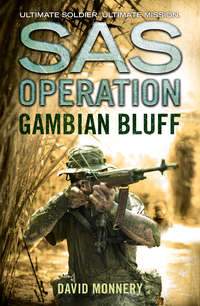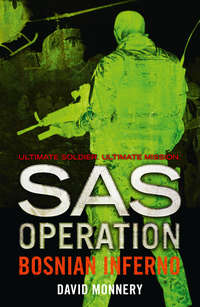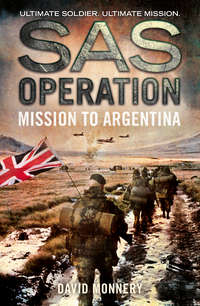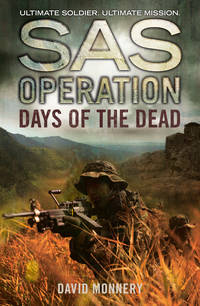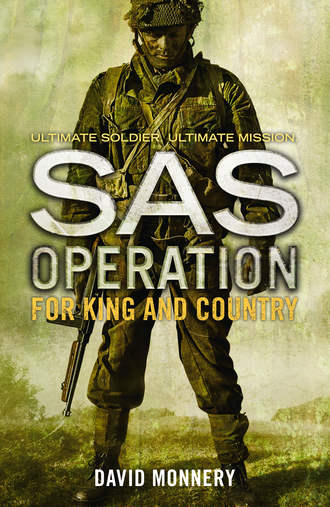
Полная версия
For King and Country


For King and Country
DAVID MONNERY

Published by HarperCollinsPublishers Ltd
1 London Bridge Street
London SE1 9GF
www.harpercollins.co.uk
First published in Great Britain by 22 Books/Bloomsbury Publishing plc 1997
Copyright © Bloomsbury Publishing plc 1997
Cover layout design © HarperCollinsPublishers Ltd 2015
Cover photograph © Stephen Mulcahey / Arcangel Images
David Monnery asserts the moral right to be identified as the author of this work.
A catalogue copy of this book is available from the British Library.
This novel is entirely a work of fiction. The names, characters and incidents portrayed in it are the work of the author’s imagination. Any resemblance to actual persons, living or dead, events or localities is entirely coincidental.
All rights reserved under International and Pan-American Copyright Conventions. By payment of the required fees, you have been granted the non-exclusive, non-transferable right to access and read the text of this e-book on screen. No part of this text may be reproduced, transmitted, down-loaded, decompiled, reverse engineered, or stored in or introduced into any information storage and retrieval system, in any form or by any means, whether electronic or mechanical, now known or hereinafter invented, without the express written permission of HarperCollins.
Source ISBN: 9780008155544
Ebook Edition © December 2015 ISBN: 9780008155551
Version: 2015-11-04
Contents
Cover
Title Page
Copyright
Chapter 1
Chapter 2
Chapter 3
Chapter 4
Chapter 5
Chapter 6
OTHER TITLES IN THE SAS OPERATION SERIES
About the Publisher
1
Italy, January 1944
The SAS men sat in two rows, facing each other across the empty belly of the rumbling Halifax. It was almost eleven o’clock on the night of 19 January 1944, and these eight soldiers had been entrusted with Operation Jacaranda, the destruction of a railway bridge across the River Potenza just outside the small town of San Severino in eastern central Italy. In just over fifty-five hours 50,000 Allied troops would be attempting a landing on the Anzio peninsula just south of Rome, and this was one of several SAS parties that were being parachuted in to disrupt the inevitable German attempts at reinforcement. There were only a few rail routes across the ridge of mountains which formed Italy’s backbone, and cutting any or all of these would hinder any shift of German forces from the east coast to the west.
The eight men were dressed in camouflage Denison smocks, khaki trousers and heavy boots. The 1937-pattern webbing pouches around their waists held ammunition for the holstered Webley .455 revolvers and directional compasses. Jump helmets and silenced models of the Sten sub-machine-gun sat in each lap. Variety could only be found in bodily posture, facial expression and the colours of the berets stuffed through the epaulettes of the smocks. Five of these were beige, reflecting a preponderance of SAS veterans, the other three the newly adopted maroon.
Ten minutes earlier the air had been full of shouted jokes, but the proximity of the drop zone had reduced them all to silence.
Captain Julian Morgan, ‘Jools’ as he’d been known since prep school, looked the most relaxed. He seemed to be grinning at some private joke as he pushed back the flop of blond hair which was forever falling over his left eye, but he was just tracing his own progress from service in India through the excitements of North Africa and Sicily to this imminent descent on the Italian mainland. There had been moments of terror and moments of sadness – enough SAS pioneers had died in the desert – but deep down he knew he was having the time of his life.
On the seat beside him was Sergeant Morrie Beckwith, his dark face as stern as ever. He was thinking, as he always did at such moments, of his wife Margie back in Wolverhampton, and worrying over what would become of her and the children if something happened to him. He told himself, as he’d frequently told her, that he was much safer in the SAS than he would have been catching artillery in the infantry, torpedoes in the Navy or flak in the Air Force, but he didn’t believe it any more than she had.
On his left, Trevor Corrigan was finding it hard to sit still. His body was telling him he needed a crap, but since he’d had one just before setting off he was inclined to think that his body was having him on. He tried to concentrate on the girl he’d met in the Salerno café two nights ago, but conjuring up a picture of her was easier than holding on to it, and in the end he just let her go and sat there farting quietly, willing the journey to be over.
Last in line on that side of the Halifax, Roger Imrie was also contemplating his first drop behind enemy lines with dry mouth and whirring brain. He was worried he would let the others down, worried about how his mother would cope on the farm if something happened to both him and his bomber-pilot brother, worried that his parachute would fail to open. He’d always thought that that would be the worst kind of death, just falling and falling, with all that time to think about it, until you were splattered all over the ground.
Sitting opposite Imrie, Lieutenant Robert Farnham noticed the spasm of fear which leapt across the younger man’s face, and knew that he was imagining the worst in one form or another. He could remember doing the same himself, but these days his quiet and watchful countenance reflected a genuine calmness within. Since Catherine’s death in 1940 – she had been killed in their country cottage when a London-bound German pilot had decided to dump his bombs and run rather than look for a real target – his own life had become almost a matter of indifference to him. He wanted to kill Germans and he wanted to win the war, but the edge of caution which came with having someone else to live for had been dulled. His sister, Eileen, would no doubt miss him, but probably not for long. Another couple of years and she’d meet and marry some nice young survivor.
The man next to Farnham looked equally unperturbed by the prospect of imminent action, but then not much ever seemed to worry Corporal Neil Rafferty. If his face wasn’t sporting its habitual innocent smile, it would be wearing its current air of good-natured puzzlement. At this moment he was thinking about the two officers and how different they were, and wondering whether he felt more comfortable with Farnham’s cool seriousness or the more popular Morgan’s dashing enthusiasm.
Such thoughts were far from Ian Tobin’s mind. He was thinking, as usual, about sex. When he wasn’t thinking about it he was worrying that he thought about it too much, and when he did think about it he found it disturbing that he could think about it with anyone, and not just with Megan, even though he was sure he really loved her. At the moment he was most concerned at the thought that he might die a virgin, without having it off with anyone. He and Megan had agreed to wait until they were married, but at times like this he couldn’t help thinking that the man sitting on his left had a surer handle on what was really important.
Mickie McCaigh was also thinking about sex, reliving the moment two nights earlier when Lucia had flicked aside the shoulder strap on her dress and revealed that she was wearing nothing underneath. Her breasts had been so damned perfect, and the way she had arched herself back over the end of the bed…He sighed and tried to think about something else, not wanting to leave the plane with a throbbing erection, and smiled as he remembered his father’s last words of advice. ‘You’ll probably have to kill a few men,’ the old man had told him, ‘so make sure you make love to even more women. It’s the only way to hang on to your marbles.’
McCaigh was doing his best – in fact, so far he was well ahead – and he had a sneaking suspicion the old man had been right. It was all completely crazy anyway – jumping out of a plane over Italy because some jumped-up little twerp in Germany had invaded Poland five years ago – but he was seeing the world and its women, and he felt as sane as he ever had.
The dispatcher opened the bomb bay, adding the howl of the wind to the rumble of the plane’s engines, and the eight men got to their feet. With the padded helmets on and the Stens slung across their backs they fixed the static lines to the suggested points on the fuselage and double-checked that they were secure – in Africa, during the formative months of the SAS, several men had fallen to their deaths when chutes failed to open.
The wait for the word to go seemed endless, but finally the lights changed colour, the dispatcher mouthed ‘good luck’ to the lead jumper and almost shoved him through the hole. The other seven followed in quick succession, for even an extra second’s delay could land someone out of sight of the man in front, and the moon had already disappeared behind a thickening layer of cloud. It was going to be dark on the ground.
The eight ghostly shapes drifted down, each man concentrating on keeping himself balanced as his eyes sought definition in the darkness below. The landing zone, according to the briefer back in Salerno, was mainly bare plateau, but the ‘mainly’ was worrying, and no one wanted to be the odd man out, landing in the only tree for miles around and breaking his neck.
In the lead position Morgan saw the ground suddenly rise up to meet him, and just about had time to appreciate the lack of trees – the intelligence gathered from an Italian restaurant-owning family in Soho had obviously been accurate – before his feet were touching down on a gently sloping section of the plateau. He went into the roll, and was on his feet again almost instantly, pulling in the billowing chute like a fisherman gathering a net.
As expected, the clouds were thick enough to render the moon almost irrelevant, and visibility was severely limited. From where Morgan stood he couldn’t see much more than a football pitch’s worth of sloping grass, interspersed with outcrops of rock. He hoped no one would be landing on one of those.
No sooner had this thought flashed through his mind than a metallic crash echoed across the plateau.
Morgan started walking back down the line of descent, half dragging and half carrying the bundled chute, compass in hand. At least his sense of direction hadn’t deserted him. He was walking south, as his instinct had told him he was. On a clear day, or even a clear night, he would have been able to see the Adriatic some thirty miles away to the left, the snow-covered peaks of the Monti Sibillini some fifteen miles in front of him, but at this particular moment the known world was about a hundred yards in diameter, and seemed to be shrinking.
The noise had been made by Corrigan, who had landed on grass but rolled into a clutch of rocks. He announced himself unhurt, but the biscuit-tin radio he was carrying – so named for the Huntley & Palmer tin in which it was packed – looked significantly the worse for wear.
‘Good job we brought two,’ Farnham said, examining it. By this time the whole team had converged on the site of Corrigan’s fall to earth.
‘Mickie, Ian – start digging,’ Morgan ordered, tossing the jump helmet in their direction and fixing his beige beret at an appropriately rakish angle. He stared into the distance, imagining what lay ahead. If the Halifax navigator had done his sums right they should be about seven miles to the north of the Potenza valley town of San Severino. And about a thousand feet above it. According to the Soho restaurateurs the journey down from the plateau would offer all the tree cover they needed for the hours of daylight.
There were also several hill villages en route, and how their occupants would react to the appearance of British soldiers was harder to predict. According to the informants in London some villages were more hospitable than others, but they had disagreed violently as to which was which. The Oxford Italian history don subsequently consulted by Intelligence was not surprised. ‘The villages around there are all walled,’ he explained, ‘and not because they’ve been worried about foreign invaders. Those villages have been fighting each other since the fall of the Roman Empire.’
Morgan grinned at the memory and turned to see how the excavation was going. It was almost complete. One last shovel full and the eight chutes were pressed into the hole, the sections of turf carefully relaid.
McCaigh straightened up and took a first real look at his surroundings. ‘Hard to imagine Vera Lynn bursting into song in a place like this,’ he muttered.
They set off in single file, Stens at the ready. Beckwith took the lead, with Morgan only a step behind him, clutching the map which had been drawn in the British Museum map room and further detailed – if the stains were any guide – during a spaghetti sauce-making competition. Not that it was needed for the moment, for all trace of the moon had now vanished and they could hardly see a yard in front of their faces. Bunching to keep in contact, the column of men was looking more like a conga line than an armed raiding party.
Progress, not surprisingly, was slow, and to make matters worse rain began to fall. Fitful at first, it soon became a steady downpour.
They continued south, hoping that their starting point had been where it was supposed to be, silently cursing the rain and whatever else came to mind. Hitler, army food and the Americans were high on most lists, though the pecking order varied.
About an hour after starting out, with everyone soaked to the skin, they finally reached the edge of the plateau and started downhill. Another ten minutes and they found themselves descending a wooded valley. It was too late for the trees to keep them dry, but Farnham thought it a good place to dig in for the rest of the night and following day. He suggested as much to Morgan, who overrode his instinctive desire to push on and reluctantly agreed.
By this time it was almost two in the morning, and much of the next hour was spent in excavating two cross-shaped hides. Both were about two feet deep, with an arm for each of the four occupants and a central well for their equipment. The men’s groundsheets, supported by cut branches and covered in foliage, offered both concealment and shelter from the rain. ‘We might be soaked to the skin, but we’re not going to get any wetter,’ Morrie Beckwith announced hopefully.
‘Someone shoot the bugger,’ came a voice from the other hide.
For the next sixteen hours six of the eight men only left their scrapes to relieve themselves in the surrounding trees. It was still raining when dawn came, though by this time the heavy downpour had subsided into a drifting mist. Visibility didn’t improve much until around noon, when the mist suddenly grew thinner and wafted away, revealing brightening clouds in the branches above. These too soon broke apart, revealing not only the sun but an arc of mostly invisible rainbow in the eastern sky.
‘That’s a good omen,’ Corrigan decided.
‘Just about cancels out your diving into a rock with the radio,’ Beckwith told him brutally.
The inhabitants of the other hide were still laughing when Morgan appeared in Farnham’s observation slit. ‘I’m going back up the hill to take a recce,’ he announced. ‘Get a decent fix on where we are. And Rafferty might as well come with me. I’ve heard he can read a map.’
Rafferty gave his companions an ‘aren’t I the lucky one’ grin and crawled out of the hide to join the captain. They walked cautiously up through the still-dripping trees, whose branches seemed full of birds eager to make up for lost warbling time, and stood watching for a few moments on the uppermost edge of the wood before starting up the slope which they had descended the previous night. It was just as bare by daylight – there were no signs of human use, no buildings in the distance, no grazing animals, just rocks and rough mountain grass.
A couple of hundred yards up the slope there was more to see. Looking south, they could see the snowcapped peaks of the Monti Sibillini shining like a row of blazing torches in the afternoon sun; looking east, their eyes could follow the parallel valleys of the rivers Potenza and Chienti to the far-distant sea. About five miles from where they stood a dark line seemed to snake across the hills between the two valleys, and Morgan’s binoculars confirmed that this was the railway they’d been sent to cripple.
San Severino was still hidden from view, but looking out across the wooded cleft in which they were camped the two men could see the land fall away into a much deeper and broader valley. The town was down there somewhere, and training his binoculars in its likely direction Morgan thought he could make out several diaphanous trails of rising smoke against the wall of hills beyond.
‘Look,’ Rafferty said suddenly, and following his arm Morgan could see another trail of smoke, this one moving towards him on the distant railway. Before the train vanished from view in the valley below them, he had counted twenty-three flat wagons, each carrying a Wehrmacht tank. He was probably only imagining it, but several minutes later he seemed to hear the train rattling across the bridge they had come to destroy.
Darkness fell soon after five, but there was another seven hours of boredom to be endured before the time came to leave the security of the hides. By then the clouds had returned and the temperature had plummeted, giving the damp air a distinctly raw edge, but at least it hadn’t started to rain again. The eight men had changed into their only other set of undergarments, and the chances of getting the first set dry seemed remote. ‘Another night like last night and we’ll all come down with fucking pneumonia,’ Trevor Corrigan observed as he disentangled a groundsheet from the wet foliage which had been laid across it.
‘You know the flu epidemic after the last war killed more people than the war did?’ Roger Imrie offered.
‘A fountain of knowledge,’ McCaigh said sardonically.
‘A fountain of crap,’ Beckwith snorted.
‘It’s true,’ Imrie protested, as if they cared.
‘So instead of dropping bombs on the Germans perhaps we should just parachute in people with runny noses,’ McCaigh offered.
‘OK, OK,’ Morgan said, cutting through the laughter. ‘Let’s have a bit of hush. We might not be the only people in Italy.’
‘I bet we’re the only people this wet,’ Corrigan said under his breath.
‘You are,’ Beckwith muttered back.
They set off on their night march, Morgan in the lead, Beckwith close behind him. It was almost as dark as it had been the previous night, but the CO had spent a considerable part of the day trying to memorize the map, and intended using his torch only as a last resort.
They had walked about three-quarters of a mile down the valley when it became apparent that the ground beneath their feet was now a fairly well-beaten path. A little further and they could see the gaunt silhouettes of buildings on the slope above them. ‘Stigliano,’ Morgan murmured to himself, just as the sound of a dog barking cut through the silence. His mental map confirmed, Morgan turned away from the village, heading up the slope to his right. The dog continued to bark, and eventually a human voice responded with what was presumably a string of Italian curses.
The team reached the top of the ridge and started down the other side. Another small village – Serripola on Morgan’s map – became dimly visible, clinging precariously to the other side of the valley. They bypassed it by following the stream which tumbled along the bottom, then clambered up what they hoped was the last ridge before San Severino.
It was. The moon was now making an effort to shine through the clouds, and the roofs of the town below glowed in the pale light. It wasn’t a big town, but Farnham guessed it would be a pretty one in daylight. It had apparently been founded about fifteen hundred years earlier by Romans on the run from Barbarians, and was said to have a lovely elliptical square and some nice churches. After the war, Farnham told himself. For now it was just a lot of buildings next door to a bridge.
The latter was still hidden from view by the curve of the ridge, but a faint yellow glow seemed to be emanating from its presumed position, suggesting a degree of illumination which reflected the enemy’s understanding of its strategic importance. The thought crossed Farnham’s mind that this was not going to be as easy as Morgan seemed to think.
‘I think another recce’s in order,’ Morgan said softly, breaking Farnham’s reverie. ‘We need to find a spot for an OP with a decent view of the bridge,’ he continued, ‘and there’s no sense in all of us stumbling around in the dark. I’ll take Rafferty.’
Farnham nodded, his eyes still on the town below. It looked so peaceful.
It took Morgan and Rafferty twenty minutes to reach their destination, but the view was worth the trip. From the edge of the trees which covered the end of the snub-nosed ridge the land fell steeply away to the railway, which itself followed a narrow shelf between cliff and river. To their right, across the rushing waters of the Potenza, the town slept, cloaked in grey. About two hundred yards to their left, the single track swept across the river on a simple underslung truss bridge. It was about seventy-five feet long, and extremely well lit by searchlights at either end. At the far end, which alone seemed to offer easy access, a railwaymen’s hut had been turned into a guardhouse. There was a light in the window, and even at this distance the two SAS men could hear raised voices inside it. Another two armed soldiers were halfway across the bridge, and unlike many such sentries Morgan had seen in his military career, they seemed to be actually taking note of the world around them.
Beyond the bridge the railway completed an S-bend by turning into what was obviously the station and goods area. The single track divided into four, and long lines of goods wagons stood on the three to the left. The roof of a goods shed rose above them. On the other side of the through line, some thirty yards this side of the station itself, there was a small engine shed with a coaling platform and water-tower.
The wagons in the goods yard might offer some cover for the approach, Morgan thought. He turned his binoculars on the road bridge, which crossed the river another couple of hundred yards beyond the railway. It was unlit and apparently unguarded.
He smiled to himself. Blowing the bridge didn’t look that difficult – the real trick would be surviving the aftermath. There were thirty miles of fairly open country between them and the scheduled Navy pickup, and the local Germans were likely to be distinctly miffed. ‘Go and fetch the others,’ he told Rafferty. ‘We won’t find a better spot for an OP than this.’
Daylight found all eight men well concealed in two rectangular trenches. One narrow end of each looked out across the bridge and station area, and it was here that the men took turns keeping watch through the narrow slit between ground and cover. The other ends were for sleeping, cooking on the tiny hexamine stoves, and, in the case of the eastern trench, manufacturing explosive devices. Morrie Beckwith was the resident expert, bringing together the ingredients they had carried with them – lumps of the new plastic explosive, thermite and lubricant – into his own variations on SAS pioneer Jock Lewes’s famous Lewes bomb. Beckwith had an almost dreamy look on his face as he worked, which suggested both intense concentration and a strange joy in the process.


